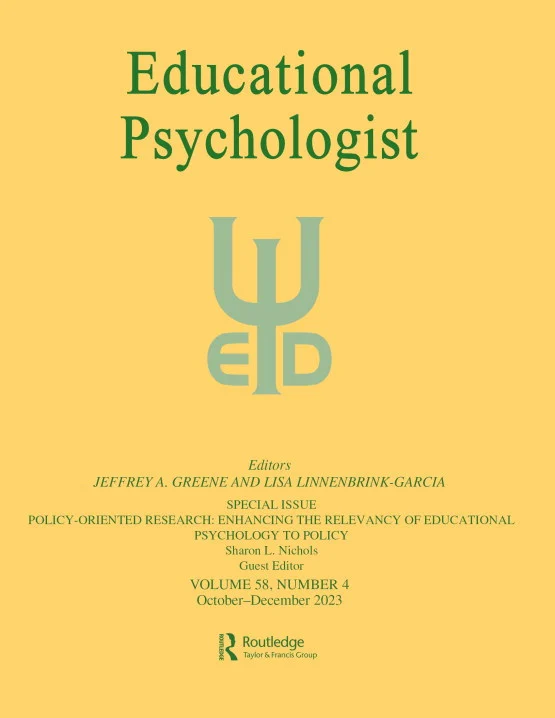动态测量:现代教育心理学的理论-心理测量范式
IF 11.4
1区 心理学
Q1 EDUCATION & EDUCATIONAL RESEARCH
引用次数: 18
摘要
学者们哀叹,目前评估学生表现的方法与当代的学习观点不一致,因为它位于学生、环境和时间之中。在这里,我们介绍并描述了一种理论心理测量范式-称为动态测量-旨在通过估计学生在观察到的学习轨迹下的学习潜力来提供学生对校本教学的反应方式的有效表征。我们研究了动态测量长达一个世纪的历史,从其新生的理论开端,通过其有限的初始实施,到目前允许其应用于大规模教育数据的专门建模框架的发展。我们利用数学评估数据的大型纵向数据集(即98所学校的11,368名学生,在6个时间点进行测量)来说明动态测量模型(dmm)如何实现现代理论和测量的目标。这些历史回顾和方法论证显示了动态测量的价值,包括更好地建模对学生学习的复杂和情境依赖的影响。本文章由计算机程序翻译,如有差异,请以英文原文为准。
Dynamic measurement: A theoretical–psychometric paradigm for modern educational psychology
Abstract Scholars have lamented that current methods of assessing student performance do not align with contemporary views of learning as situated within students, contexts, and time. Here, we introduce and describe one theoretical–psychometric paradigm—termed dynamic measurement—designed to provide a valid representation of the way students respond to school-based instruction by estimating the learning potential of those students given their observed learning trajectory. We examine the century-long history of dynamic measurement, from its nascent theoretical beginnings, through its limited initial implementations, to the current development of a specialized modeling framework that allows it to be applied to large-scale educational data. We illustrate how dynamic measurement models (DMMs) can realize the goals of modern theory and measurement using a large longitudinal dataset of mathematics assessment data (i.e., 11,368 students nested within 98 schools and measured at 6 time points). These historical review and methodological demonstrations show the value of dynamic measurement, including better modeling of complex and contextually dependent influences on student learning.
求助全文
通过发布文献求助,成功后即可免费获取论文全文。
去求助
来源期刊

Educational Psychologist
Multiple-
CiteScore
19.10
自引率
3.40%
发文量
16
期刊介绍:
The Educational Psychologist is a scholarly journal dedicated to exploring the psychology of learning and instruction. Articles in this journal encompass a diverse range of perspectives, from examining psychological mechanisms to exploring social and societal phenomena related to learning and instruction. The journal publishes theoretical and conceptual articles, as well as reviews and meta-analyses, that significantly contribute to theory or advance the methods used to explore educational psychology. Emphasizing innovation and advancing understanding, the journal does not publish articles solely reporting the methods and results of empirical studies; instead, all submissions, including reviews and meta-analyses, must offer clear implications for advancing theory. In addition to regular articles, the journal features special issues that delve into important themes in educational psychology, along with focal articles accompanied by peer commentary.
 求助内容:
求助内容: 应助结果提醒方式:
应助结果提醒方式:


